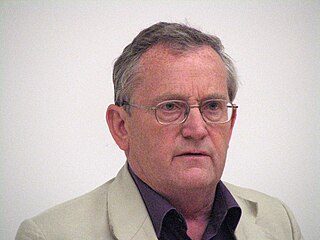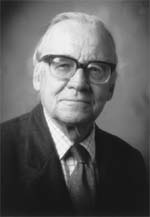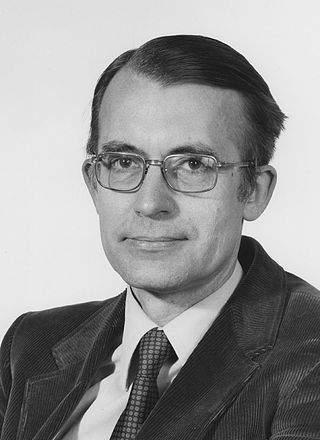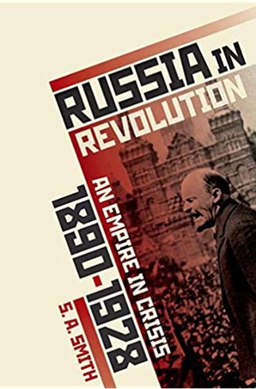Related Research Articles

The October Revolution, known in Soviet historiography as the Great October Socialist Revolution, was a revolution in Russia led by the Bolshevik Party of Vladimir Lenin that was a key moment in the larger Russian Revolution of 1917–1923. It was the second revolutionary change of government in Russia in 1917. It took place through an armed insurrection in Petrograd on 7 November 1917 [O.S. 25 October]. It was the precipitating event of the Russian Civil War.

The Russian Revolution was a period of political and social change in the Russian Empire, starting in 1917. This period saw Russia abolish its monarchy and adopt a socialist form of government following two successive revolutions and a bloody civil war. The Russian Revolution can also be seen as the precursor for the other European revolutions that occurred during or in the aftermath of World War I, such as the German Revolution of 1918–1919.
"Dual power" refers to the coexistence of two governments as a result of the February Revolution: the Soviets, particularly the Petrograd Soviet, and the Russian Provisional Government. The term was first used by the communist Bolshevik leader Vladimir Lenin (1870–1924) in the Pravda article titled "The Dual Power".

John Percival Postgate, FBA was an English classicist and academic. He was a fellow of Trinity College, Cambridge from 1878 until his death, and also taught at Girton College, Cambridge (1877–1909) and University College, London (1880–1908). Having been passed over for the Chair of Latin at the University of Cambridge, he was Professor of Latin at the University of Liverpool from 1909 to 1920. He was a member of the Postgate family.

Robert John Service is a post-revisionist British historian, academic, and author who has written extensively on the history of the Soviet Union, particularly the era from the October Revolution to Stalin's death. He was until 2013 a professor of Russian history at the University of Oxford, a Fellow of St Antony's College, Oxford, and a senior Fellow at Stanford University's Hoover Institution. He is best known for his biographies of Vladimir Lenin, Joseph Stalin, and Leon Trotsky. He has been a fellow of the British Academy since 1998.
John Stephen Morrill is a British historian and academic who specialises in the political, religious, social, and cultural history of early-modern Britain from 1500 to 1750, especially the English Civil War. He is best known for his scholarship on early modern politics and his unique county studies approach which he developed at Cambridge. Morrill was educated at Trinity College, Oxford, and became a fellow of Selwyn College, Cambridge, in 1975.
Geoffrey Alan Hosking is a British historian of Russia and the Soviet Union and formerly Leverhulme Research Professor of Russian History at the School of Slavonic and East European Studies (SSEES) at University College, London. He also co-founded Nightline.
Archibald Haworth Brown, is a British political scientist. In 2005, he became an emeritus professor of politics at the University of Oxford and an emeritus fellow of St Antony's College, Oxford, where he served as a professor of politics and director of St Antony's Russian and East European Centre. He has written widely on Soviet and Russian politics, on communist politics more generally, on the Cold War, and on political leadership.

Dimitri Dimitrievich Obolensky was a Russian-British historian who was Professor of Russian and Balkan History at the University of Oxford and the author of various historical works.
Alexander Rabinowitch is an American historian. He is Professor Emeritus of History at the Indiana University, Bloomington, where he taught from 1968 until 1999, and Affiliated Research Scholar at the St. Petersburg Institute of History, Russian Academy of Sciences, since 2013. He is recognized internationally as a leading expert on the Bolsheviks, the Russian Revolution of 1917, and the Russian Civil War.

Sir Edward Anthony Wrigley was a British historical demographer. Wrigley and Peter Laslett co-founded the Cambridge Group for the History of Population and Social Structure in 1964.
Colin Craig Kidd is a historian who specializes in American and Scottish history. He is currently Professor of History at the University of St Andrews, after he served as Professor of Intellectual History and the History of Political Thought at Queen's University Belfast, where he has worked since he left the University of Glasgow in 2010.
George Hugh Nicolas Seton-Watson, CBE, FBA was a British historian and political scientist specialising in Russia.
John Richard "Jaś" Elsner, is a British art historian and classicist, who is Professor of Late Antique Art in the Faculty of Classics at the University of Oxford, Humfry Payne Senior Research Fellow in Classical Archaeology and Art at Corpus Christi College, Oxford, and Visiting Professor of Art History at the University of Chicago. He is mainly known for his work on Roman art, including Late Antiquity and Byzantine art, as well as the historiography of art history, and is a prolific writer on these and other topics. Elsner has been described as "one of the most well-known figures in the field of ancient art history, respected for his notable erudition, extensive range of interests and expertise, his continuing productivity, and above all, for the originality of his mind", and by Shadi Bartsch, a colleague at Chicago, as "the predominant contemporary scholar of the relationship between classical art and ancient subjectivity".

Catriona Helen Moncrieff Kelly, FBA is a British academic specialising in Russian culture. From 1996 to 2021, she was Professor of Russian at the University of Oxford and a Fellow of New College. In 2021, she was elected senior research fellow of Trinity College, Cambridge and honorary professor of the University of Cambridge.
Ruth Harris is an American historian and academic. She has been Professor of Modern History at the University of Oxford since 2011 and a senior research fellow at All Souls College, Oxford, since 2016. Previously, she was a junior research fellow at St John's College, Oxford, from 1983 to 1987, an associate professor at Smith College from 1987 to 1990, and a fellow of New College, Oxford, between 1990 and 2016. She was awarded the Wolfson History Prize in 2010 for her book The Man on Devil's Island, a biography on Alfred Dreyfus.
Stephen Leonard White is British political scientist and historian, emeritus professor at University of Glasgow, an author of many articles and books about politics of Soviet Union and Russia.
Richard Michael Smith, FBA, FRHistS is a historical geographer and demographer. He was professor of historical geography and demography at the University of Cambridge from 2003 to 2011, where he is now an emeritus professor, and served as director of the Cambridge Group for the History of Population and Social Structure (1994–2012). He was also a fellow of Downing College, Cambridge, from 1994 to 2010.
This is a select bibliography of post World War II English language books and journal articles about the Revolutionary and Civil War era of Russian (Soviet) history. The sections "General Surveys" and "Biographies" contain books; other sections contain both books and journal articles. Book entries may have references to reviews published in English language academic journals or major newspapers when these could be considered helpful. Additional bibliographies can be found in many of the book-length works listed below; see Further Reading for several book and chapter length bibliographies. The External Links section contains entries for publicly available select bibliographies from universities.

Russia in Revolution: An Empire in Crisis, 1890 to 1928 is a narrative history of the Russian Revolution, Civil War, and the early history of the Soviet Union, written by S. A. Smith and published in 2017 by Oxford University Press. The release was timed with the 100th anniversary of the Russian Revolution.
References
- 1 2 3 4 5 "Smith, Prof. Stephen Anthony", Who's Who (online ed., Oxford University Press, December 2018). Retrieved 28 August 2019.
- ↑ "Professor Stephen Smith FBA", British Academy . Retrieved 28 August 2019.
- 1 2 3 4 "Professor Stephen Smith", All Souls College, Oxford . Retrieved 28 August 2019.
- ↑ "The Russian Revolution and the factories of Petrograd, February 1917 to June 1918", EThOS (British Library). Retrieved 28 August 2019.